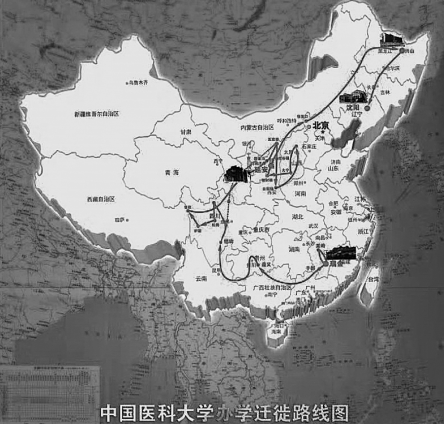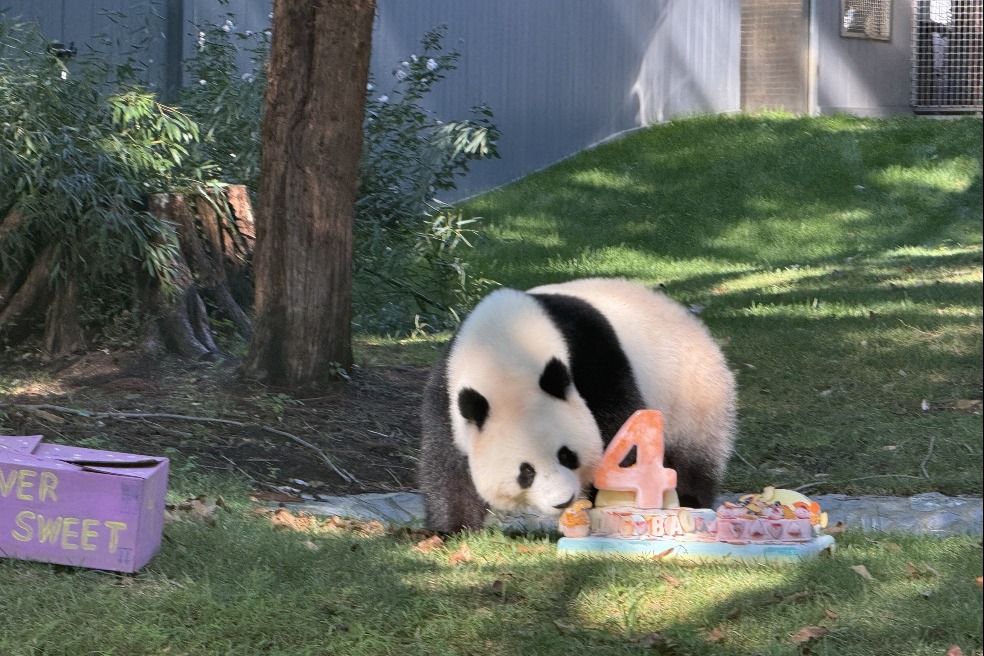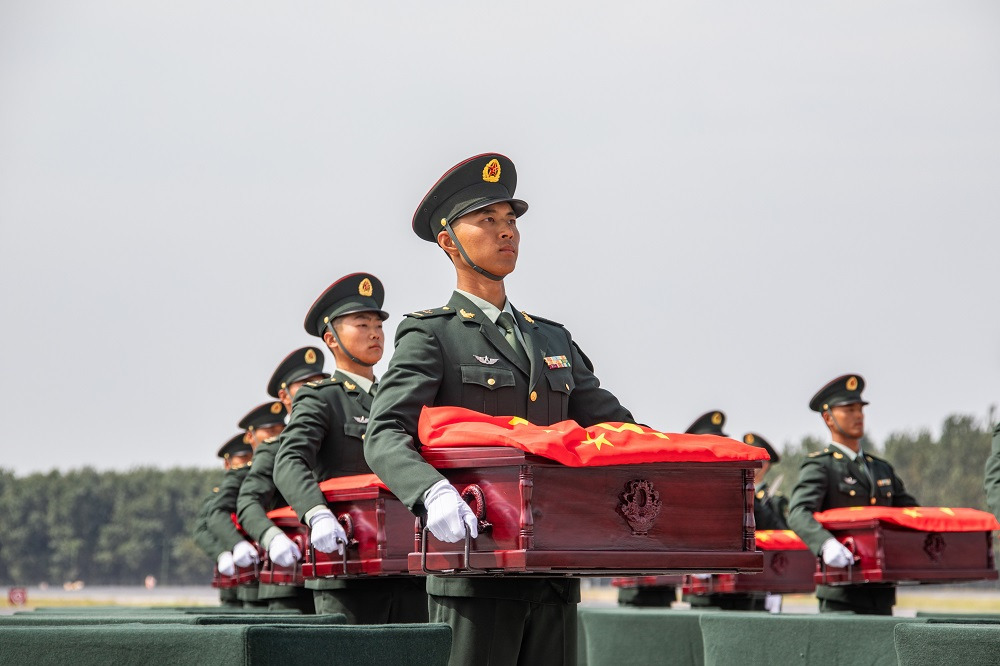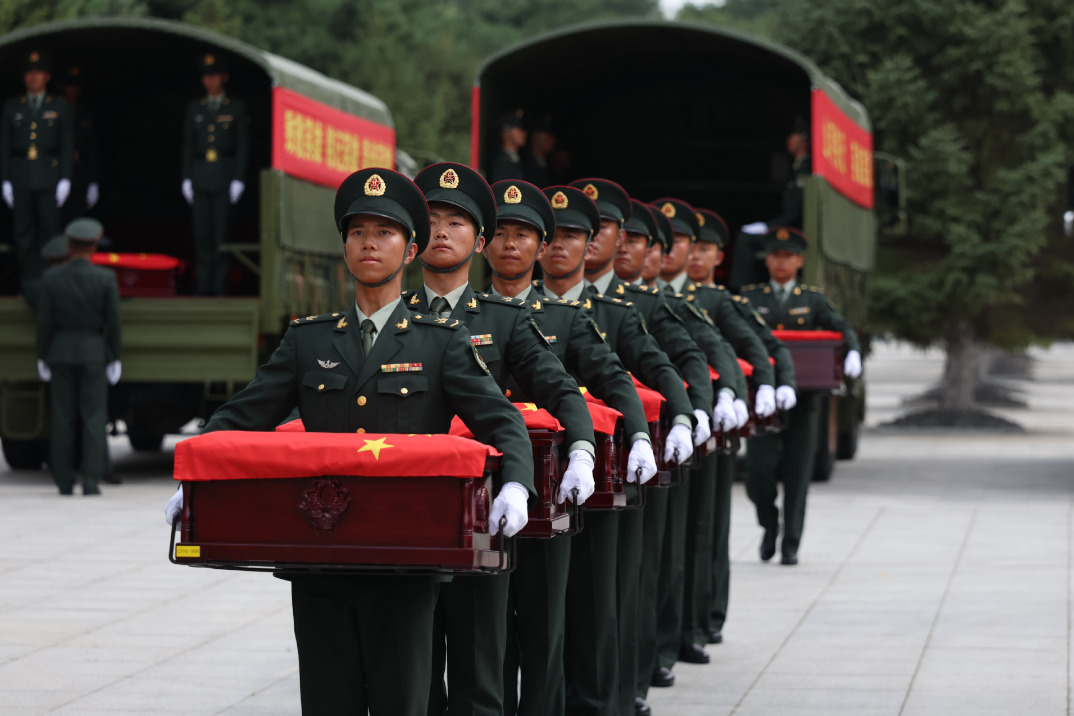From Red Army doctors to poverty alleviation angels in white

Bai Dongqin, a pediatrician at the Yan'an People's Hospital, didn't expect she would ever have the chance to return to school to study for a doctorate degree after four years of working.
As one of the first batch of four lucky candidates, she is currently studying severe pediatric diseases at the China Medical University, specializing in the pathogenesis and intervention of acute and chronic lung injuries.
"I am really lucky to have the opportunity to study at the CMU, one of the most famous medical institutions in China with a long history. I plan to set up a department for critical pediatric diseases after my studies," said Bai.
As the cradle of the Chinese revolution, the city of Yan'an has been seriously plagued by a lack of medical services for decades. In recent years, thousands of people have been trapped in poverty because of poor health conditions.
Data from the Yan'an Health Commission show that 5,358 people fell into poverty due to illness by the end of October last year, accounting for 53.4 per cent of the total number of medical cases. This represents a 10.8 per cent increase over the same period in the previous year.
Experts blame a lack of high-quality medical services for the situation. For example, if the budget is 10,000 yuan ($1,438) to treat an orthopedic patient in Yan'an, the cost would climb to 30,000 yuan in Xi'an and 100,000 yuan in Beijing, due to deductions made from medical insurance coverage reimbursements and the higher cost of accommodation and transport.
"Yan'an had been declared officially rid of overall poverty in May. However, the situation in which people slipped back into poverty due to illness has not reduced, but, on the contrary, kept on growing. This has brought great challenges to eradicating poverty and the success of the government's overall campaign to alleviate poverty and to achieve a moderately prosperous society by the end of 2020," says Hao Jiandong, director of the Yan'an Health Commission.
The situation was also echoed by Bai. At present, severely ill children can only go to Xi'an for treatment, some 300 kilometers away from Yan'an. While it costs a lot of time and money, the patients' families also bear a huge emotional burden.
In order to improve the capability of local medical services, the CMU and Yan'an People's Hospital set up a partial trusteeship to coordinate operations between the hospitals in the region in 2012.
Zhu Yue, a senior professor of orthopedic surgery at the CMU, says that since Yan'an is the cradle of Chinese revolution and the original intention behind the hospital was to ensure the health of the Red Army, their fight should now be to improve the health of the local people. He is also the vice-president of the First Hospital of the CMU who led the first poverty alleviation medical team's visit to Yan'an in 2013.
Founded in 1931, the CMU was initially the Military Medical School of the Chinese Red Army. It was the first college founded by the Communist Party of China and played an important role during the Long March (1934-35), the War of Resistance Against Japanese Aggression (1931-45) and the War of Liberation (1946-49). The school was established in Yan'an after the Long March with the Central Red Army (the First Front Red Army) in 1935, and grew to become China Medical University in Yan'an. The CMU was set up not only to serve the military, but also to provide free medical services to the local residents at the time.
Yan'an local, 83-year-old Liu Fengming from Liuwanjiagou, Baota district, still remembers having his ear infection cured by doctors from the CMU as a child almost 80 years ago.
While it is relatively easy to treat one person's illness, it is rather more challenging to improve the overall medical services of a city.
Lin Guangdong, president of Yan'an People's Hospital, recalls the vicious cycle in which the hospital was trapped due to a lack of good doctors before 2012. In order to achieve practical results and promote fundamental change, the CMU devoted its efforts to improving three key aspects: scientific research, personnel training and discipline.
Over the last seven years, the CMU has organized hundreds of academic conferences and conducted in-service training programs for local doctors.
The expert group guided local doctors to publish more than 50 academic papers and won 18 provincial and municipal awards for scientific and technological improvements.
All these efforts have greatly improved the overall ability of the hospital's talent pool and laid solid foundations for its sustainable development. With the help of the CMU, the Yan'an People's Hospital has established two key provincial specialties in the fields of pediatrics and orthopedics, according to Lin.
The last seven years saw a quick rise of the number of outpatients, inpatients and surgery procedures at Yan'an People's Hospital.
In 2017, the hospital was successfully upgraded to a third-grade class-A hospital and is now competent in many types of complex surgical procedures.
"Nearly 80 per cent of patients can now receive surgical treatment in Yan'an. This not only helps to save money and time, but also plays a vital role in the work of poverty alleviation," Hao says.
Moreover, the CMU's health poverty alleviation model provides a new pathway for medical reform in Yan'an. Partnering with the CMU and two other medical universities, Yan'an has established more medical groups and started to provide highquality medical services at the grassroots level.
In order to consolidate the achievements made in eradicating health poverty, the CMU and Yan'an government signed a new agreement to formulate a strategic development plan in order to ensure the success of their health poverty alleviation efforts.
Guo Xiuzhi contributed to this story.

Today's Top News
- Nation honors fallen soldiers returned from South Korea
- Equal consultation with mutual respect right way to settle TikTok issue
- Aid program must return to its roots
- UN Security Council slams deadly strikes in Qatar
- Trump to meet Qatari PM in New York
- China, US to hold trade talks in Spain






























